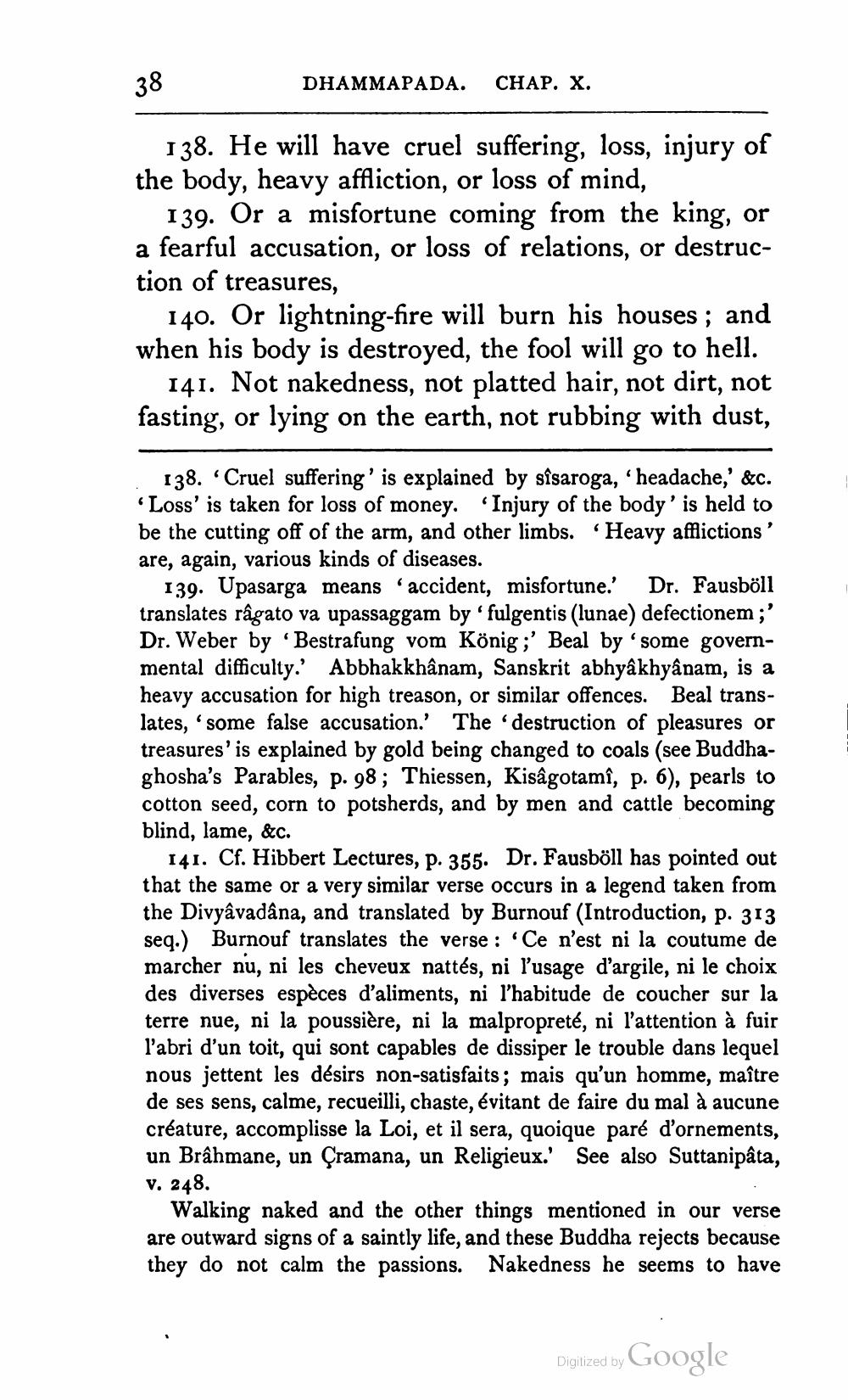________________
38
DHAMMAPADA. CHAP. X.
138. He will have cruel suffering, loss, injury of the body, heavy affliction, or loss of mind,
139. Or a misfortune coming from the king, or a fearful accusation, or loss of relations, or destruction of treasures,
140. Or lightning-fire will burn his houses; and when his body is destroyed, the fool will go to hell.
141. Not nakedness, not platted hair, not dirt, not fasting, or lying on the earth, not rubbing with dust,
138. Cruel suffering' is explained by sîsaroga, "headache,' &c. Loss' is taken for loss of money. Injury of the body' is held to be the cutting off of the arm, and other limbs. Heavy afflictions' are, again, various kinds of diseases.
139. Upasarga means accident, misfortune. Dr. Fausböll translates râgato va upassaggam by 'fulgentis (lunae) defectionem ;' Dr. Weber by ‘Bestrafung vom König ;' Beal by some governmental difficulty. Abbhakkhânam, Sanskrit abhyâkhyânam, is a heavy accusation for high treason, or similar offences. Beal translates, some false accusation. The destruction of pleasures or treasures' is explained by gold being changed to coals (see Buddhaghosha's Parables, p. 98; Thiessen, Kiságotamî, p. 6), pearls to cotton seed, corn to potsherds, and by men and cattle becoming blind, lame, &c.
141. Cf. Hibbert Lectures, P. 355. Dr. Fausböll has pointed out that the same or a very similar verse occurs in a legend taken from the Divyâvadâna, and translated by Burnouf (Introduction, p. 313 seq.) Burnouf translates the verse : Ce n'est ni la coutume de marcher nu, ni les cheveux nattés, ni l'usage d'argile, ni le choix des diverses espèces d'aliments, ni l'habitude de coucher sur la terre nue, ni la poussière, ni la malpropreté, ni l'attention à fuir l'abri d'un toit, qui sont capables de dissiper le trouble dans lequel nous jettent les désirs non-satisfaits; mais qu'un homme, maître de ses sens, calme, recueilli, chaste, évitant de faire du mal à aucune créature, accomplisse la Loi, et il sera, quoique paré d'ornements, un Brâhmane, un Çramana, un Religieux.' See also Suttanipata, v. 248.
Walking naked and the other things mentioned in our verse are outward signs of a saintly life, and these Buddha rejects because they do not calm the passions. Nakedness he seems to have
Digitized by Google




